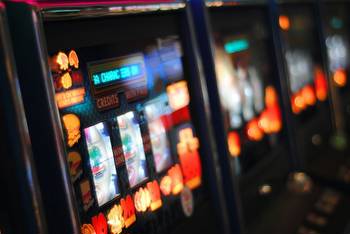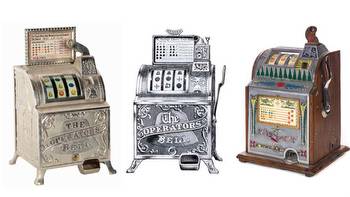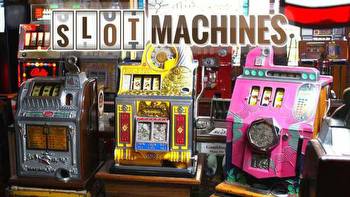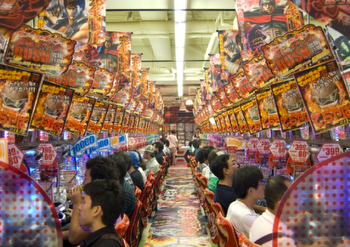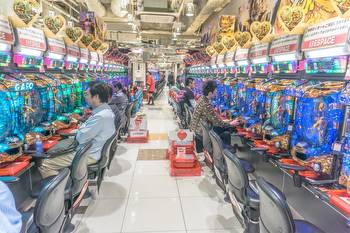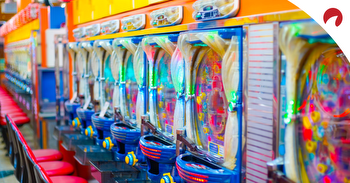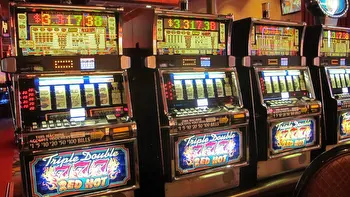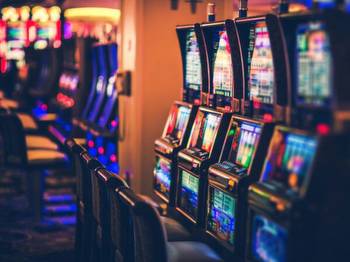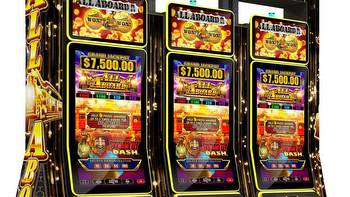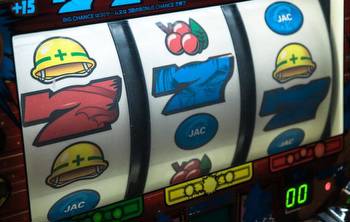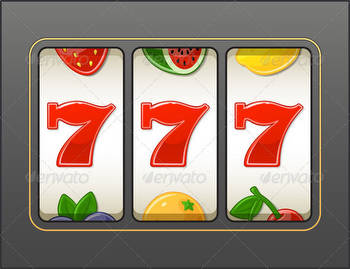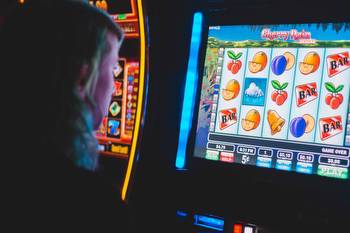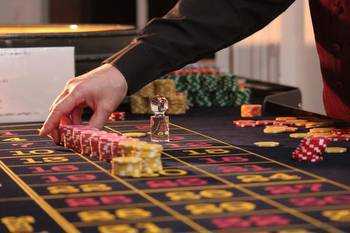4 Facts That Reveal How Slot Machines Really Work
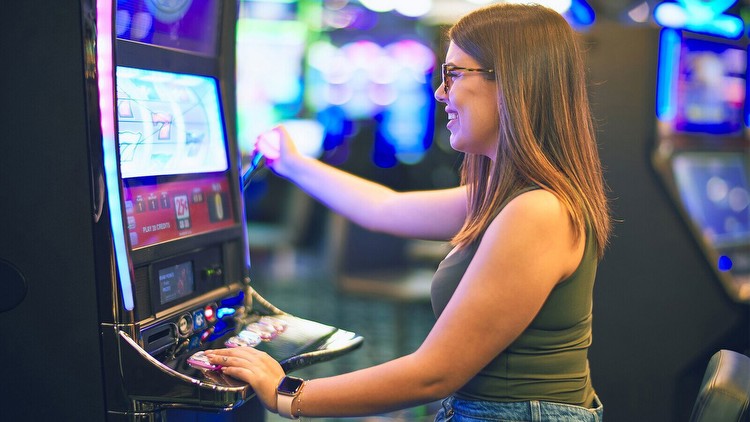
Slot machines are a fool’s game. Everything at a casino is a fool’s game, unless you visit with the assumption that you plan to lose money, but slot machines have the added problem of not even being fun. And yet, slots are the most lucrative part of the casino. Slots in American casinos took in over $34 billion last year, more than everything else casinos do combined. For comparison, the entire domestic box office might take in $10 billion in a good year (and hasn’t managed that for several years now).
It’s a machine that takes in money and rarely spits any back out. You don’t need to know any more than that to shake your fist at it in anger. Still, other facts about slots will make you even more angry.
You Can Get Arrested for Playing a Machine Someone Else Put Money In
In 2004, a guy named A.J. Werling went to a Denver casino and sat at a slot machine. It still had 76 cents in it. He put in $20 of his own on top of that to keep playing, and he hit the button for a few rounds. A little bit into this, security guards escorted him away. They referred him to prosecutors, who convicted him of fraud. That meant a $500 fine, plus a criminal record and an indeterminable number of failed future background checks.
This is normal. Hundreds of people are convicted of this every year in Colorado alone. The offense is called “Fraud — Take Money Not Won,” and even picking up cash a vanished player dropped on the floor may get you convicted of it. Legally (according to the law the casinos pushed for), that money belongs to the casino.
If these prosecuted slots players won big jackpots, you might understand why a casino would fight to avoid having to pay up, but they didn’t. Many won nothing. This law also might sound contrary to the casino’s interests, because if money’s sitting in a machine, the house is better off if someone plays it and likely now feels compelled to play more. We suspect the rule mostly exists to deter loafers from wandering the casino without paying anything, seeking a chance to play for free. No such chance exists, says the rule, so leave — or, better yet, sit down and play, with your own money.
Whoever Presses the Button Wins, No Matter Whose Money It Is
Jan Flato popped into a Florida casino in 2017, and he ran into Marina Navarro, whom he’d previously met at a casino a couple years earlier. The two headed to the room for high rollers, where he put $50 into a machine in hopes of winning big. “Push the button for good luck,” he told her (according to his account, which Navarro later disputed but casino surveillance did not). She did, triggering a $100,000 jackpot.
He thought that money would go to him. Instead, the casino split it into two halves — a check made out to Navarro and $50,000 in cash, which they also gave to Navarro. Security protected her as she exited, to make sure Flato didn’t approach her. He later consulted lawyers, who told him he had no claim on the money.
The way the law works, pressing the button (or pulling the lever, or hitting the touchscreen) is the act that counts as making the wager. Putting the money in is just putting money in, while it’s the act of making the wager that entitles someone to winnings. All states with gambling have rules saying this same thing. It sounds difficult to reconcile with the previous rule we shared, about what happens when you play a machine using money someone left behind, but that’s only because we’re not lawyers. Also because we’re not lawyers, don’t quote us when we tell you the best slots strategy is therefore to sneak up behind gamblers and hit the button for them, without paying anything.
Those Fruit Symbols Are a Relic From When They Bypassed Gambling Laws
Video slot machines roll all kinds of symbols past you. They flash images from properties that are entirely suitable for gambling, such as Captain America and Squid Game. Traditionally, though, the machines use pictures of fruit, which is why slots are called “fruit machines” in the U.K. These symbols include cherries, lemons and just the word “BAR” for some reason.
This is a holdover from how slot machines originally functioned. This variety of machine once dispensed flavored gum rather than money. The fruits represented different flavors. The bell symbol represents the Bell Fruit Gum company, and “BAR” derives from the company’s logo. These old-timey gamblers weren’t really playing just for the chance to win gum, though. They played in the hopes of winning gum that that they could later exchange for cash. Because the machine itself did not spit out cash, people could argue that slots weren’t gambling, back when anti-gambling laws were a serious obstacle to budding casinos.
This argument protected the industry a little, but not much and not for long, so the gaming lobby later made sure the machines became officially legal, even when dispensing money directly. In other countries, the added step is still necessary. Japan’s pachinko machines can’t legally dispense money, instead dispensing prizes that players exchange for money. As a result, though Japan banned gambling until a couple years ago, pachinko machines legally took in trillions of yen, an amount equivalent to 4 percent of the country’s GDP.
The Military Makes $100 Million Annually From Opening Slot Machines to Servicepeople
Yes, overseas military bases have slot machines, and they eat $100 million annually, taking that money from servicepeople. In their defense, $100 million is not that much money in military terms — anytime you hear figures related to government money, you have to consider just how huge the government and the country really are. On the other hand, you should ask why bases are using slot machines to take any money from those stationed there.
These machines exist thanks to the military’s Morale, Welfare and Recreation groups, who use them to raise money for recreation expenses. The revenue doesn’t drop into the Pentagon’s general account, where it wouldn’t go very far, but to fund more targeted projects, such as golf courses. This is perhaps not the strong pro-slots argument the military thinks it is.
One other argument says that since so many servicepeople are gambling addicts, these machines give them an outlet besides going to visit a casino where they’d lose even more money. Okay, but — crazy thought here — mightn’t these machines cause or worsen gambling addictions, not satiate them? Also, if the goal is to entertain the forces without making them go to a casino, how about tweaking the machines so they have no edge, and don’t on balance leave players poorer at all? Such machines would be even more popular with players and even better at deterring casino trips.
Granted, changing a slot machine so it makes no money would defeat the whole point of slot machines. We’re fine with that, actually.
Scroll down for the next article








